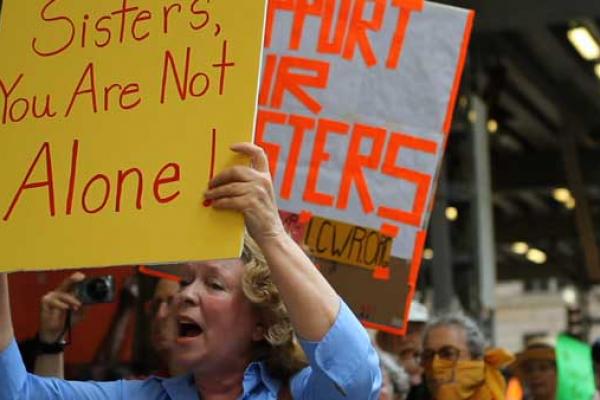Fifty years after Pope John XXIII convened the Second Vatican Council to modernize the Roman Catholic Church, the legacy of that watershed summit that revolutionized Catholic life is at the core of a dispute between the Vatican and American nuns.
In April, the Vatican accused the Leadership Conference of Women Religious (LCWR), the umbrella group that represents the majority of American nuns, of “doctrinal confusion.” As LCWR leaders meet this week (Aug. 7-11) to plot their response to the Vatican, many of the sisters say they are just following the spirit of Vatican II.
“This is not just about the Vatican versus the nuns. This really is about the future of how we interpret the message of the Second Vatican Council,” Sister Maureen Fiedler told the PBS program “Religion & Ethics NewsWeekly.”
Read the Full Article

